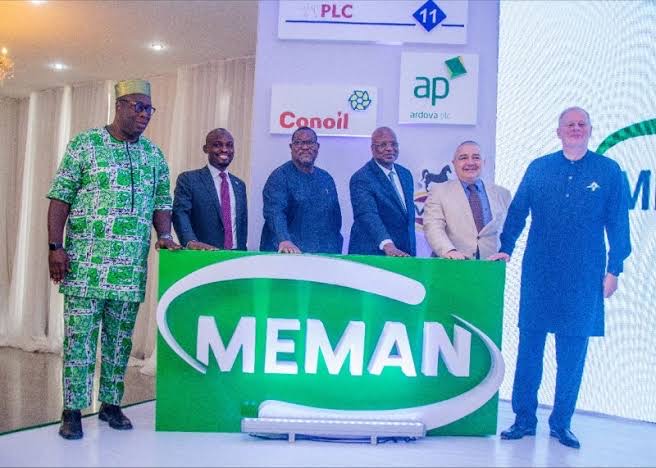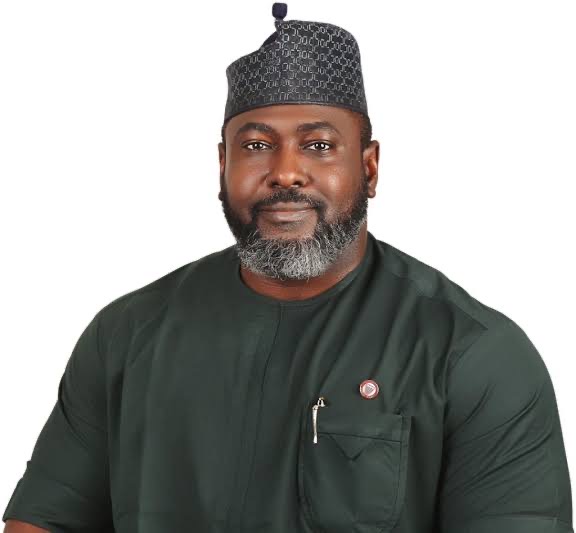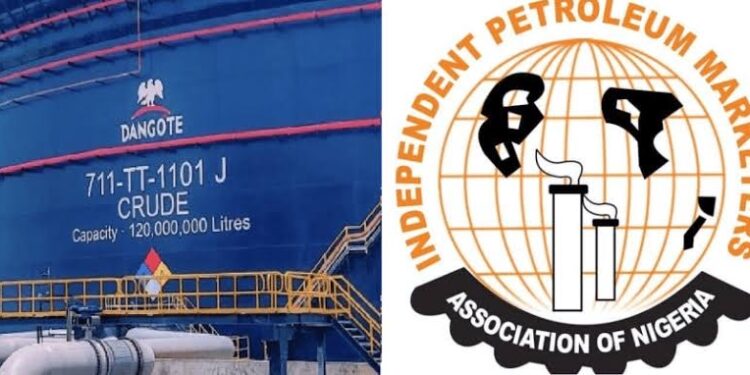Oil marketers in Nigeria have begun efforts to establish direct business relationships with the Dangote Petroleum Refinery, seeking to bypass the current intermediary, Nigerian National Petroleum Company Limited (NNPC), in purchasing Premium Motor Spirit (PMS), commonly known as petrol.
This marks a significant shift in the business operations of the Independent Petroleum Marketers Association of Nigeria (IPMAN) and the Petroleum Products Retail Outlets Owners Association of Nigeria, as they aim to purchase fuel directly from the $20 billion refinery instead of going through the NNPC.
Currently, NNPC is the sole off-taker of petrol from the Dangote refinery, which is located in Lekki, Lagos. Other oil marketers, including IPMAN members, have no choice but to access PMS through NNPC. However, IPMAN and other marketers are now taking proactive steps to engage with Dangote to establish direct purchase agreements.

This development coincides with calls from the Nigerian Economic Summit Group (NESG) for the Federal Government to avoid long-term monopolies in the downstream oil sector and instead support the Dangote refinery to foster growth.
The NESG emphasized the importance of competition and transparency in the market, which would ultimately benefit consumers and the economy at large.
IPMAN officials have been vocal about their stance, describing NNPC as a competitor. According to them, efforts are underway to meet with Aliko Dangote, the President of Dangote Group, or other key management officials to negotiate direct business deals.
Although no specific date has been set for this meeting, IPMAN leaders stressed that purchasing directly from the refinery would be more beneficial than going through another marketer.
Terlumun James, the Secretary of IPMAN, expressed the association’s preference for conducting its business discussions privately, noting that once any agreement is finalized, it will be made public.
He remarked, “If IPMAN is trying to meet with Dangote, we may not tell the press, we can call the press the moment we get something from Dangote reasonably. We are very serious businessmen; we are not politicians. Give us some little time, let us tidy up the business we are doing.”
When asked about IPMAN’s relationship with the NNPC, James described NNPC as a registered company that competes in the same space as IPMAN. “As far as IPMAN is concerned, NNPC is a competitor. IPMAN is being focused. Thank God you know we are planning to have a meeting with Dangote, it’s part of those things,” James added.

The main motivation behind IPMAN’s decision to engage directly with the Dangote refinery is the desire to have a steady supply of products for their members, which would ultimately provide peace of mind to the general public by ensuring the availability of fuel at petrol stations.
James noted that IPMAN’s vast network of filling stations positions them as a critical player in Nigeria’s petroleum distribution network, and they hope Dangote will recognize this by establishing a direct business relationship.
The spokesman of IPMAN, Ukadike Chinedu, echoed James’ sentiments, stressing the importance of meeting with Dangote to discuss the welfare and interests of marketers.
He explained that the deregulation of Nigeria’s petroleum market has created an environment where direct transactions between willing buyers and sellers are not only possible but preferable. “This is deregulation, which is an open market. So, there should be a willing-buyer, willing-seller relationship; that is what we are propagating,” Chinedu said.
Despite their desire to establish direct dealings with the Dangote refinery, Chinedu emphasized that IPMAN would continue to source PMS from other suppliers, including NNPC if Dangote refused to sell to them. The association is committed to ensuring that its members have access to fuel, regardless of the source.
Billy Gillis-Harry, the President of the Petroleum Products Retail Outlets Owners Association of Nigeria, supported IPMAN’s initiative, stating that direct access to PMS from the Dangote refinery would foster healthy competition in the market.
He expressed optimism that ongoing discussions with Dangote officials would result in a mutually beneficial agreement. “Accessing the product from them will deepen the competition in the space, and healthy competition is good for the downstream sector,” Gillis-Harry said.
While IPMAN and other marketers are pushing for direct access to the Dangote refinery, the Major Energies Marketers Association of Nigeria (MEMAN) has already started lifting PMS from the plant. Over 50 million liters of petrol were lifted from the refinery in the past week alone.
MEMAN Chairman Huub Stokman confirmed that major marketers are loading products from the refinery, though he did not disclose whether they were purchasing directly from Dangote or through NNPC.
At the same time, NESG is advocating for increased competition in the downstream oil sector, with a focus on supporting the Dangote refinery’s growth. NESG CEO Dr. Tayo Adeloju explained that while competition is necessary to avoid monopolistic practices, the government should maintain its support for Dangote.
“In a perfect world, we would have said NNPC should compete with Aliko, but NNPC is not a good competitor,” Adeloju said, adding that the Federal Government has made international commitments to support the Dangote refinery as part of its inflation reduction strategy.
In a recent interview, Aliko Dangote revealed his plans to reinvest the profits from the Dangote refinery into other sectors of Nigeria’s economy. He drew inspiration from Mukesh Ambani, Asia’s richest person, who successfully disrupted India’s telecom industry and is now creating the country’s largest non-bank lender.
Dangote’s refinery is poised to transform Nigeria’s energy landscape, reducing the nation’s reliance on fuel imports and boosting its industrial capabilities.
The Federal Government, meanwhile, has stated that it will not interfere in any disputes between NNPC and Dangote refinery over pump prices of petrol. Special Adviser to the President on Information and Strategy, Mr. Bayo Onanuga, emphasized that both NNPC and Dangote, as independent entities, are free to set their prices based on market forces.
“The PMS price regime has been deregulated. Dangote is a private company. NNPC should not forget it is a limited liability company,” Onanuga said.
The ongoing shift towards direct negotiations between marketers and the Dangote refinery represents a significant change in Nigeria’s petroleum industry. As competition grows, consumers stand to benefit from better pricing and improved access to fuel.
However, the long-term effects of these developments remain to be seen as the country navigates the complex dynamics of its oil and gas sector.
































